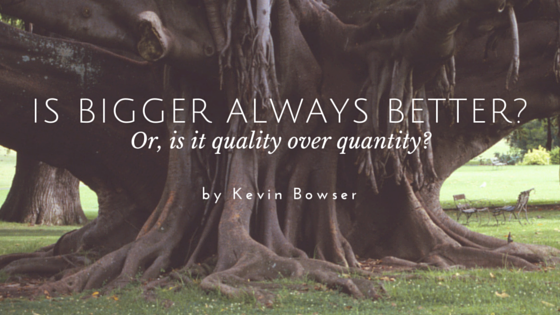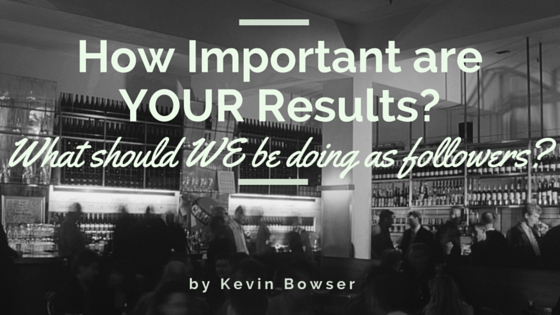
I don’t have all of my thoughts completely together on this issue. But I am questioning in my own mind the drive of many organizations toward growth at all costs.
As I stated right off the bat, I don’t have all of my thoughts fully baked. Instead, I may have more questions than I have answers at this point. And I’ll get to those in a moment. But first, I have a few observations. Perhaps the best way for me to illustrate my thoughts is through a personal story.
I have attended church my whole life. I was practically raised in the church and attended every time the door was open. (I am thankful for that, by the way.) I grew up in a series of churches that rarely exceeded 200 in attendance on any given Sunday morning. Most of the churches that I have been fortunate enough to worship in have been under 100 in regular attendance. In fact, my ”favorite” church up to this point was right at 200 in regular attendance. It was my favorite for many reasons. I served on my first church board at that church. We went through a building program, a pastoral search and had many other real and exciting experiences in that church. We were part of a great group of young couples and we were heavily integrated into the life of the church through various avenues of involvement. We knew everybody. Everybody knew us.
By contrast, we had the opportunity to worship in one of the largest churches in the metropolitan Houston area. A church with the stated goal of getting larger through acquisition (my word, not theirs) of smaller churches, through satellite churches operating in theaters, and also through traditional growth and influx. I knew the pastor by name only. I think I knew his wife’s name. I didn’t know his children’s names. He didn’t know me. He didn’t know my children. He wouldn’t even have known I was a member if we ran into each other in the grocery store. If I was to have gotten sick, or been in the hospital, or had a family crisis I wouldn’t have had a clue who to call. The Bible study class that we attended right before we left had about 110 people who attended regularly.
This all sounds like I am complaining or whining and that is not my intent. I am just trying to illustrate a reality in the modern church. I then want to draw some leadership applications from those observations and experiences.
What is the leadership application in this story?
The leadership application is that leaders are not absolved of their basic duties as leaders after an organization reaches a certain size. And if they feel that they cannot be effective after reaching a certain size, decisions must be made that will determine if growth will remain healthy, or become too much weight for a leader to bear?
So, here are some questions that are in my head that will be challenging to leaders in small, medium, and large organizations alike:
Is bigger necessarily better? — It is hard not to hearken to the Siren’s call to get bigger and bigger and bigger.
Click here to read the rest of the article »
Caring is sharing. Will you please share this with your network?











